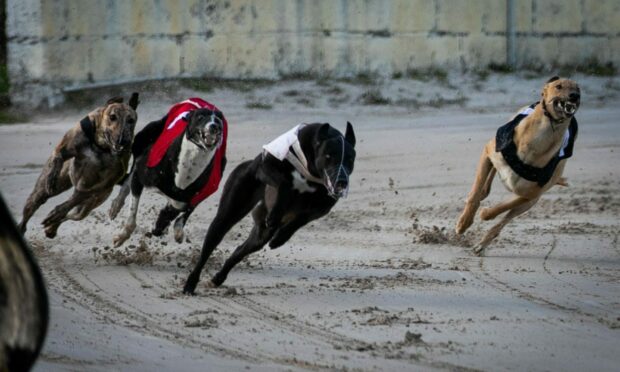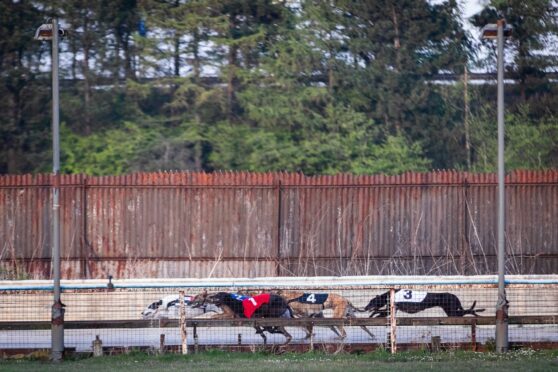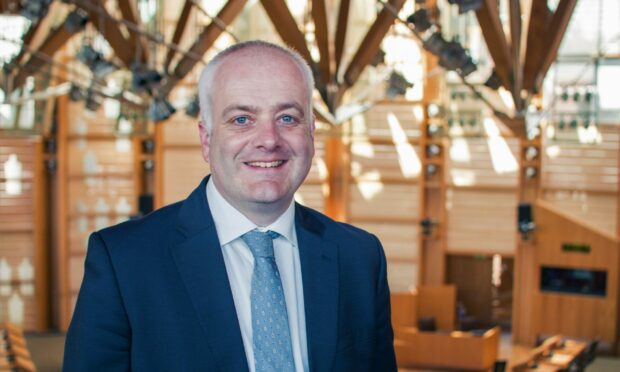Forcing a Fife greyhound racing track to be officially regulated would lead to its closure, it has been warned, as pressure mounts for an outright ban in Scotland.
Animal welfare campaigners want to outlaw dog racing, saying it is harmful and “beyond reform”.
Thornton Stadium, near Kirkcaldy, is the only operational track left in Scotland.
It has been criticised for not being regulated by the Greyhound Board of Great Britain (GBGB).
MSPs heard from board members and Paul Brignal, owner of Thornton Stadium, on Wednesday at Holyrood.
At the meeting, MSPs were warned forcing the track to become regulated would be its “death knell”, and banning it outright would move the sport underground.
‘We would have to close’
Mr Brignal says he faces being forced to shut his business, which he has owned with Sandy Bingham for the last 20 years.
Speaking at Holyrood’s rural affairs committee, he said: “The injustices of banning greyhound racing would be terrible, I don’t understand why you would want to ban it.
“I don’t think anyone has come forward with a good enough reason to ban it.
“If it was banned, we would have to close.”
This comes after a survey carried out by the committee found more than 90% of respondents support a ban on greyhound racing.
Mr Brignal says the survey is unfair as those campaigning for a ban are more likely to respond to it, adding: “A call for views is no basis for deciding the future of greyhound racing in Scotland.”
‘Death knell’ for amateur track
Thornton Stadium is one of the only tracks in the whole of the UK not to be regulated by GBGB.
Trainers and owners licensed by GBGB need to keep their greyhounds in a kennel rather in their home, and the board has oversight of all of their greyhounds’ whole lives.
GBGB tracks also have a vet present during race meets.
Mr Brignal says he should not have to join GBGB because his is an amateur track and therefore cannot afford to pay for a vet.
Forcing the track to become regulated by GBGB was suggested, but the regulator warned this could lead to Thornton Stadium closing its doors.
Mark Bird, CEO of GBGB, said: “There are no GBGB tracks in Scotland anymore but rather than going for a ban or a phased ending, perhaps regulation could be adopted by Scotland.
“But the problem you have is this is a hobby track, so it would be a death knell for them.”
Mr Brignal added he would not be considering becoming GBGB regulated.
Forcing the sport underground
GBGB also warned an outright ban could lead to the sport going underground.
Mr Bird told MSPs: “There are now 23 Scotland-based trainers that are now travelling between where their bases are in Scotland to most likely Newcastle or Sunderland.
“The effect on a ban may well be that even Scotland-based trainers couldn’t continue to carry out what they’re doing, assuming they’re doing it for payment, to come over the border to England.
“Our views have always been the same – have the governments done enough to actually look at the legislation and the regulation without having to go for a ban?
“Because actually to ban something outright from our point of view would just drive it underground.”
GBGB also records how many dogs die because of injuries or because they cannot be rehomed once they retire.
In 2018 242 dogs died at their tracks and an additional 190 were euthanised because they couldn’t be homed.
This reduced to 120 and 13 by 2021.
Mark Ruskell, Green MSP for Mid Scotland and Fife, said: “Anyone with even an ounce of compassion will be horrified to hear these admissions from the industry that greyhounds are first being run into the ground and then euthanised when they have ended their usefulness.
“I am furious at these remarks which completely ignore the suffering and the cruelty being inflicted on greyhounds through these activities and the notion that it is somehow okay because they can be put down and disposed of once they are done.”
In the past year at Thornton Stadium two dogs sustained injuries and one was put down as the owner could not afford the treatment.



Conversation